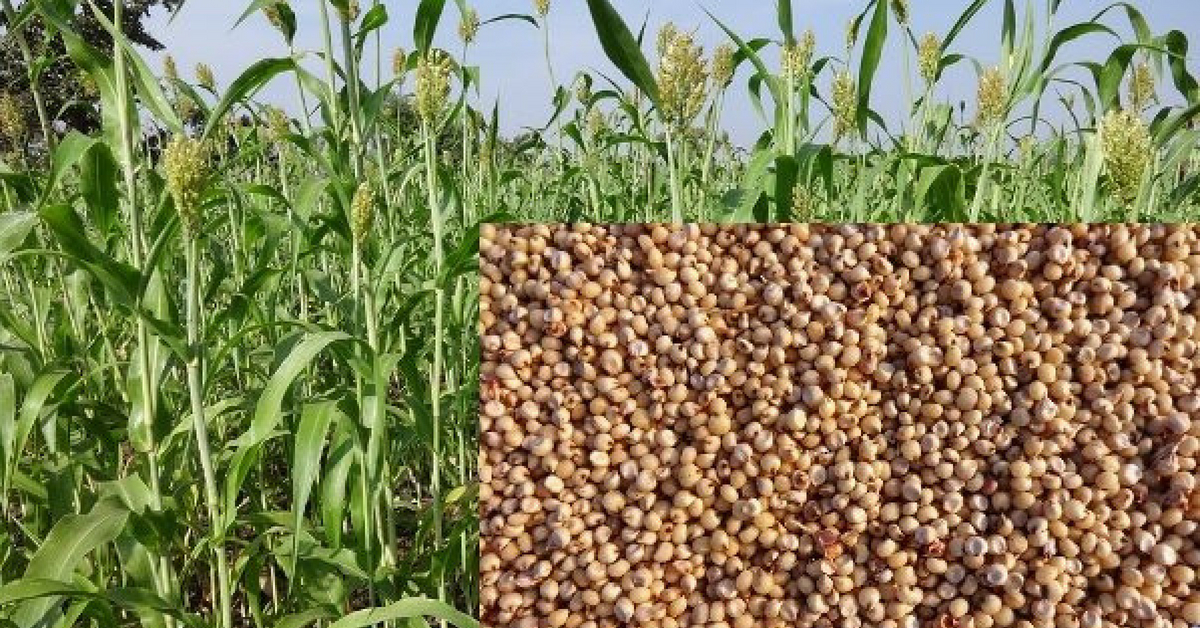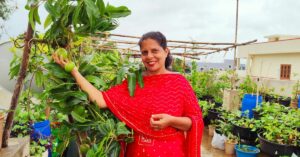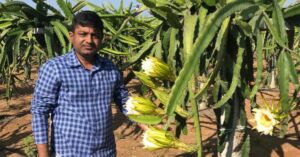Eco-Friendly Plastic From Jowar? ICRISAT Scientists Are Making It a Reality Soon!
Scientists at ICRISAT, Patancheru, are trying to develop a sustainable alternative to plastic, using jowar.

Jowar, also known as Sorghum, is a widely-consumed crop, especially in Telangana, where the famous Jonna Rotte (jowar roti) is a staple food item.
Scientists at ICRISAT, Patancheru, are working hard to develop new varieties of this crop and put it to a variety of uses, ranging from syrup to ethanol and biofuel, and now, they have developed plastic from the crop, reports the New Indian Express.
People and organisations across the country are scrambling to create eco-friendly, non-carcinogenic and biodegradable alternatives to plastic.
While some of these are edible, as they are made using flour, others are crafted using plant material and sugarcane bagasse (crushed stalk), thus making them microwave and freezer safe.
While sugarcane bagasse is widely available, it now has company, in the form of plastic made from jowar bagasse.

So, why is jowar bagasse preferred to sugarcane bagasse?
1. Jowar is more water-efficient than sugarcane and needs nine times less water than sugarcane per crop.
2. Jowar produces three batches of crops, as opposed to one crop of sugarcane per year.
3. It contains similar levels of cellulose as sugarcane bagasse and has a good prospect of being used as raw material for pulp products.
Dr A Ashok Kumar, a principal scientist at ICRISAT, says that jowar is most efficient in terms of biomass production per unit of time, water and fertiliser. It is compostable and can be disposed of safely. Additionally, simultaneous production of value-added byproducts is possible.
There is more good news. According to Dr Kumar, existing machinery in sugar mills can be used to extract ethanol from jowar, according to a ‘big mill test’ conducted in Gujarat. Harvests can be timed to match the off-season for sugarcane when crushing mills are mostly idle.
You may also like:- Check out This Eye-Catching & Eco-Friendly Alternative to Plastic Chopping Boards!
Kumar backs up his statement with facts that show that more than 10,000 jowar farmers in Telangana, were linked with ethanol distilleries and decentralised crushing units, according to field trials on new jowar breeds, and the sale of jowar stalks to the mills brought farmers a higher price.
Well, with states and authorities clamping down on plastic use, perhaps it is time to turn to these eco-friendly and sustainable alternatives like these, and do our bit to save our planet.
(Edited by Gayatri Mishra)
Like this story? Or have something to share? Write to us: [email protected], or connect with us on Facebook and Twitter.
NEW: Click here to get positive news on WhatsApp!
This story made me
-
97
-
121
-
89
-
167
Tell Us More
We bring stories straight from the heart of India, to inspire millions and create a wave of impact. Our positive movement is growing bigger everyday, and we would love for you to join it.
Please contribute whatever you can, every little penny helps our team in bringing you more stories that support dreams and spread hope.



















